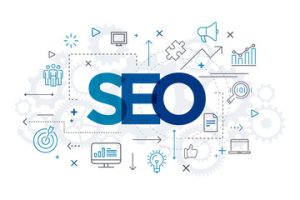
Private Investigator Nashville is professionally trained to uncover facts, verify information, and observe behavior discreetly and lawfully. While the profession is often dramatized in entertainment, the real work of a private investigator is grounded in patience, attention to detail, and strong ethical standards. These investigators operate independently and are typically hired by individuals, attorneys, or organizations that require reliable information for personal or legal reasons. Their role is to gather facts rather than make judgments, providing clients with documented findings that can support decisions or legal actions.
Private investigators must be adaptable because every case presents unique challenges. One day may involve background research and document analysis, while another may require extended surveillance or interviews. The work demands critical thinking and the ability to connect small details into a clear and accurate picture. Trust is central to the profession, as clients often share sensitive concerns that require confidentiality and discretion at all times.
Common Types of Investigations
Private investigators handle a wide range of cases that extend far beyond popular stereotypes. Many assignments involve locating individuals who have lost contact with family members or need to be found for legal reasons. Others focus on verifying personal histories, confirming credentials, or uncovering undisclosed information that may impact legal disputes or personal decisions.
Another common area of work involves monitoring behavior in situations where trust has been questioned. These investigations require careful observation, detailed record keeping, and adherence to legal boundaries. Investigators must ensure that all evidence is gathered lawfully so that it can be used effectively if needed. The goal is always to provide clarity rather than speculation, allowing clients to move forward with confidence.
Skills and Training Required
Becoming a private investigator requires a combination of formal training, practical experience, and personal traits suited to investigative work. Strong analytical skills are essential, as investigators must evaluate information from multiple sources and determine its relevance and accuracy. Communication skills also play a vital role, particularly when conducting interviews or presenting findings to clients.
Attention to detail separates effective investigators from average ones. Small inconsistencies in records or behavior can lead to significant discoveries when examined carefully. Investigators must also remain calm and objective, even when cases involve emotionally charged situations. Ethical judgment is critical, as professionals in this field must know when to proceed and when to stop to remain within legal and moral boundaries.
The Importance of Discretion and Ethics
Discretion is one of the defining characteristics of a successful private investigator. Clients rely on investigators to handle sensitive information responsibly and without unnecessary exposure. Maintaining confidentiality is not only a professional obligation but also a foundation for long term trust. A single breach of discretion can damage reputations and undermine the credibility of the investigator.
Ethical conduct is equally important. Investigators must follow laws related to privacy, surveillance, and information access. Cutting corners or using illegal methods can invalidate evidence and create serious consequences for both the investigator and the client. Ethical investigators understand that integrity protects everyone involved and ensures that the information gathered can be used responsibly.
How Investigations Are Conducted
The investigative process typically begins with a detailed consultation to understand the client’s concerns and objectives. From there, the investigator develops a strategy tailored to the specific situation. This may involve research, observation, interviews, or a combination of methods depending on the nature of the case.
Throughout the investigation, careful documentation is maintained. Notes, photographs, and timelines help create a clear record of findings. This organized approach ensures accuracy and allows the investigator to present information in a way that is easy for clients to understand. Professional investigators prioritize clarity and transparency so clients know exactly what was discovered and how it was obtained.
Challenges Faced in the Field
Private investigation is not without its challenges. Cases often require long hours and extended periods of observation that test patience and focus. Investigators must remain alert while blending into everyday environments without drawing attention. Physical and mental endurance are important, especially when assignments stretch over days or weeks.
Another challenge involves managing client expectations. Not every investigation produces the outcome a client hopes for, and part of the investigator’s role is to present facts honestly, even when they are difficult to accept. Professionals in this field must balance empathy with objectivity, ensuring that clients receive truthful information without unnecessary interpretation or bias.
The Value of Accurate Information
The true value of a private investigator lies in their ability to provide accurate and verified information. In situations filled with uncertainty or suspicion, facts offer stability and direction. Reliable findings can help individuals make informed personal choices, resolve disputes, or prepare for legal proceedings with greater confidence.
Accurate information also prevents misunderstandings from escalating into larger conflicts. By clarifying situations early, investigations can save time, emotional strain, and financial resources. This practical value is why private investigators continue to play an important role in modern society, even as technology changes how information is accessed.
Technology and Modern Investigation
Advancements in technology have expanded the tools available to private investigators. Digital records, online databases, and electronic communication analysis now complement traditional investigative methods. These tools allow investigators to cross check information more efficiently and uncover connections that may not be visible through observation alone.
However, technology does not replace human judgment. Skilled investigators understand how to interpret digital information within context and verify it through reliable sources. Technology is most effective when combined with experience, intuition, and ethical awareness. The human element remains essential in drawing accurate conclusions and understanding behavior.
Choosing the Right Professional
Selecting a private investigator requires careful consideration. Experience, professionalism, and clear communication are important indicators of quality service. Clients should feel comfortable discussing their concerns openly and asking questions about the investigative approach. Transparency regarding methods and expectations helps establish trust from the beginning.
A good investigator listens carefully and avoids making promises that cannot be guaranteed. Investigations depend on available evidence and circumstances, and honest professionals make this clear. By focusing on facts rather than assumptions, they provide realistic guidance and dependable results.
Final Thoughts
Private investigators serve a vital role by uncovering truth in situations clouded by uncertainty. Their work requires discipline, discretion, and a strong commitment to ethical standards. Beyond the intrigue often associated with the profession, private investigation is fundamentally about clarity and accountability. When handled responsibly, investigations empower clients with knowledge that supports informed decisions and meaningful resolution.





